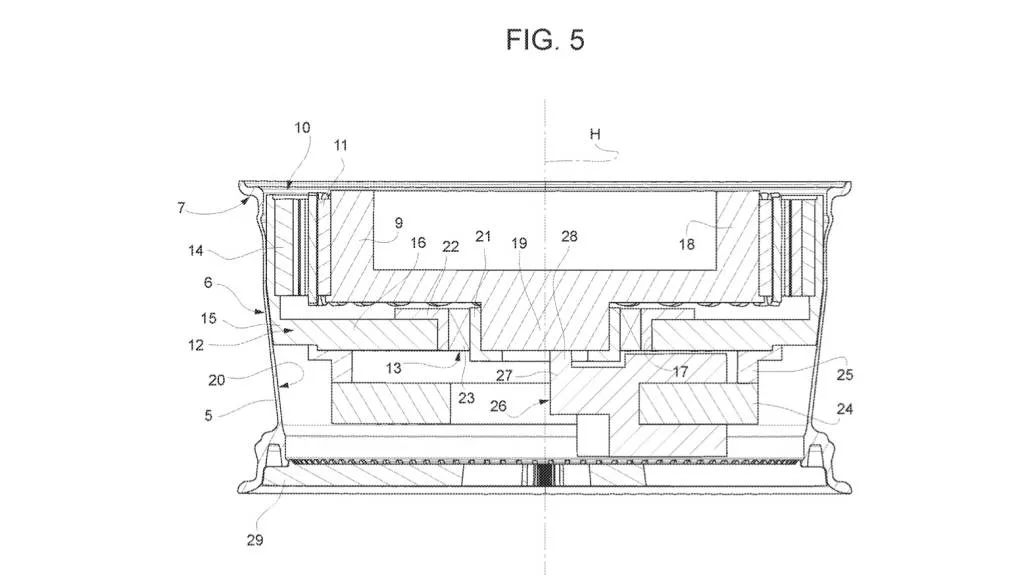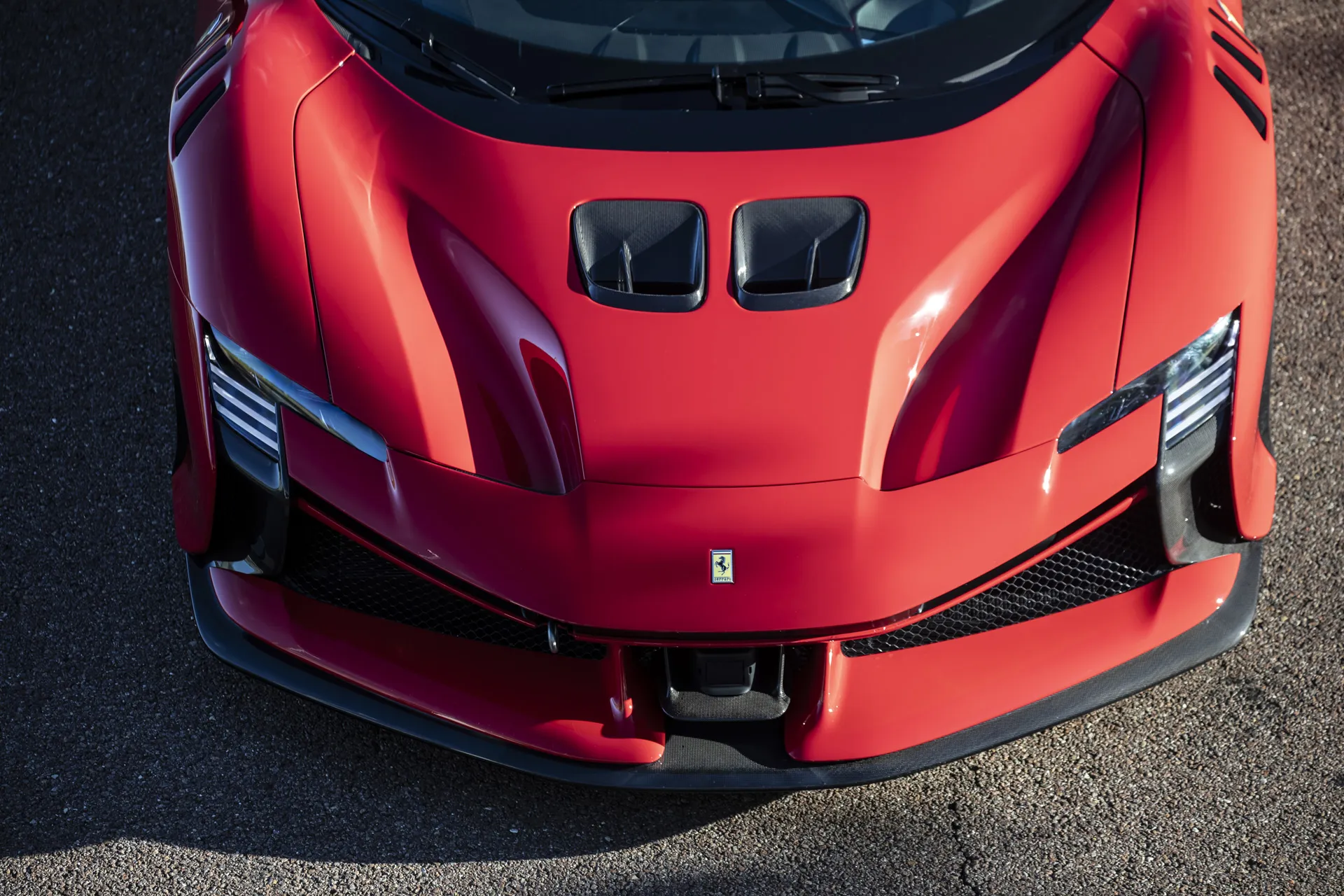A recently-surfaced Ferrari patent application hints at in-wheel motors for future performance road cars.
In a filing published by the United States Patent and Trademark Office (USPTO) Nov. 2, 2023, filed the previous April, the Italian performance automaker appears to be working to integrate motors together with friction brakes, as part of a car’s wheel assembly.
Ferrari is developing axial-flux motors, but the application discusses the more traditional type of motor—of the radial-flux permanent-magnet synchronous kind.
As described in the application, the stator would be part of the wheel hub, while the rotor would be attached to the wheel rim. This would also incorporate the brake disc as part of the assembly, with the disc and rotor separated by a spacer.
Ferrari in-wheel motor patent image
Ferrari claims this design reduces cost and complexity by limiting the number of additional components needed for an in-wheel motor. The automaker also claims that it can address any issues brought about by the added unsprung weight that comes with in-wheel motors through suspension design and tuning. And it describes use of electromagnetic sensors to give more precise control over power flow—which could be a significant differentiator.
Ferrari isn’t the first performance-car manufacturer to consider in-wheel motors. McLaren early this year announced that it’s developing an “in-wheel propulsion system” combining McLaren Applied Technologies racing expertise with Elaphe in-wheel tech, for “hyper-responsive electric vehicles.”
Other applications have been less performance-focused. Lightyear claimed that it had the world’s most efficient EV powertrain with in-wheel motors—also from Elaphe—but the Lightyear 0 EV didn’t quite get to the production stage.

Ferrari in-wheel motor patent image
Lordstown Motors also used Elaphe in-wheel motors, licensing the tech for its Endurance electric pickup truck. The Endurance did briefly make it to production, but few were built before Lordstown declared bankruptcy. Elaphe has yet another customer in Aptera, which in 2019 announced that it would use the company’s motors for its three-wheeler. Aptera has said the vehicle is getting closer to production-ready, but hasn’t provided a firm timeline.
All this aside, Chinese automaker Dongfeng earlier this year claimed to have the world’s first regular production passenger car with in-wheel motors—from supplier Protean. The Dongfeng Fengshen E70 only uses in-wheel motors to power its rear wheels, however, with a conventional inboard motor powering the front axle.
Read the full article here




